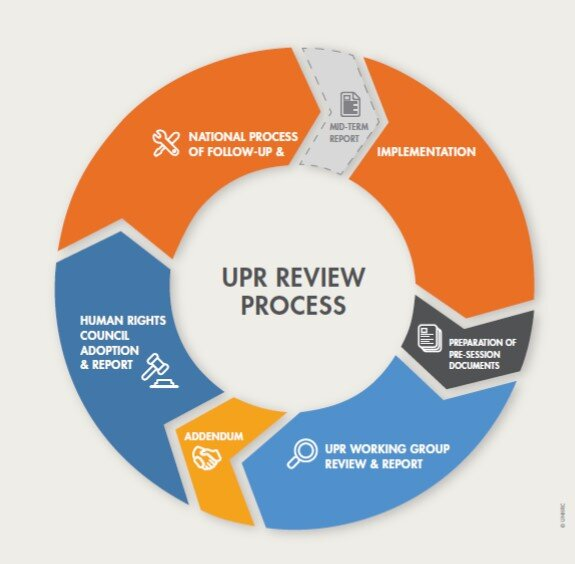IFOR has prepared and submitted to the UN three reports for the upcoming 44th session of the Universal Periodic Review of Colombia, Russian Federation and Turkmenistan. The formal session will take place in November 2023.
IFOR is constantly engaging in advocacy initiatives at the UN to support the full recognition and implementation of the right to conscientious objection to military service. This work is carried on in collaboration and support of local organizations and conscientious objectors.
The report on Colombia, for instance, has been prepared in collaboration with ACOOC, local organization for conscientious objection and FOR Peace Presence a local organization which is actively engaging with human rights defenders and the Peace Community of San José de Apartadò.
In Colombia the right to conscientious objection to military service is not fully implemented and lately the illegal practice of illegal recruitment "batidas" and arbitrary detention has increased.
There is as well a lack of guarantees of the right to due process and the decision-making is still under the control of military authority. Conscientious objectors are victims of several discriminations in their social and political rights.
The report mentions as well the issue of the militarization of the territory and the topic of armed conflict and International Humanitarian Law.
You can read the complete report on Colombia here.
The situation in Russia has deteriorated since the breaking of the current war of aggression in Ukraine. The report submitted by IFOR highlights the obstruction of the exercise of the right to conscientious objection to military service and the practice of raids and roundups to forced recruitment and the consequences of the "partial mobilization" proclaimed last autumn. Additionally it has been registered the arbitrary detention of soldiers who refuse to participate in the war and their ill treatment also in the Ukrainian occupied territories.
In Russia there is as well a severe intensification of the violation of the right to freedom of expression and the harsh discrimination against Jehowa Witnesses.
Read the complete report on the current situation in Russia here.
The submission on Turkmenistan reports on the not recognition of the right to conscientious objection to military service and the consequent imprisonment of conscientious objectors and their ill treatment.
The Universal Periodic Review is a State-driven process, which provides the opportunity for each State to present what actions they have taken to improve the human rights situation in their country and to fulfil their human rights obligations; the State under review will also report on the implementation of the previously accepted recommendations. UN Member States have the possibility to ask questions and make recommendations to the State under review. The UPR Working Group consists of the 47 members of the Council, however any member state can take part in the discussion.
The review is based on information provided by the interested State, independent human rights experts and other stakeholders such as NGOs.
NGOs reports and proposed recommendations can be referred to by any of the States taking part in the interactive discussion during the review; it is therefore of vital importance to engage at the UPR and address specific issues which can be therefore part of the dialogue with the country under review.
IFOR focuses in particular on issues related to conscientious objection and to the militarization of society.
IFOR is currently running a particular conscientious objection project, funded by the Joseph Rowntree Charitable Trust (JRCT), a grant-making Quaker trust. Among the main aims are research work and redaction of thematic country-based reports to be submitted to the UN for the regular State reviews on human rights.
The right to refuse to kill, although it is a human right, thus universal and non-derogable, it is not recognized in all countries and many objectors are persecuted.

